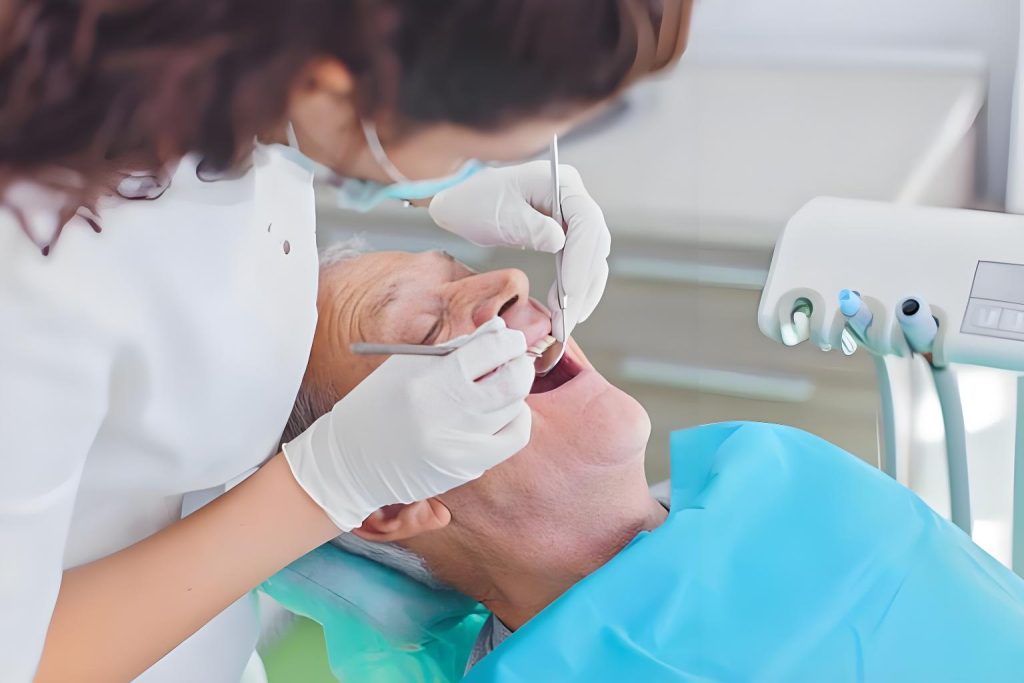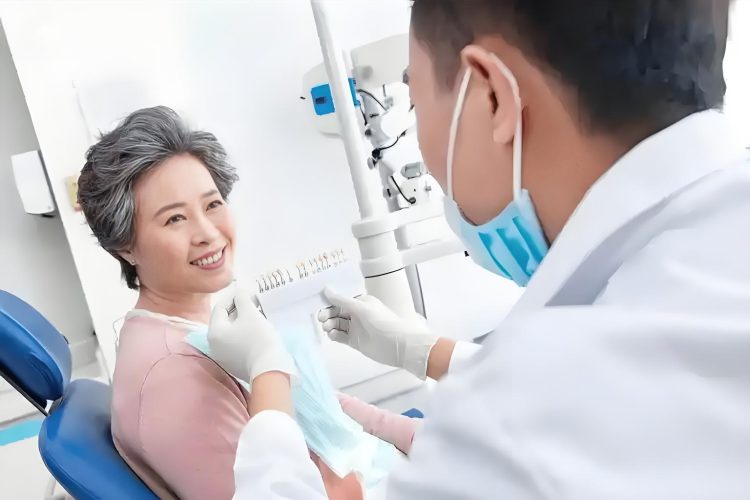As we traverse the serene landscapes of our twilight years, our bodies undergo subtle yet significant transformations. These changes often extend to our oral health, impacting not just our ability to smile confidently but also our overall wellbeing. Among the myriad aspects of healthcare for the elderly, regular dental check-ups frequently get overlooked, despite their indispensable role in preserving dental hygiene, preventing diseases, and enhancing quality of life. This article delves into the profound importance of dental care for seniors, emphasizing why consistent visits to the dentist are paramount.

The Aging Mouth: Understanding the Challenges
Aging brings about a series of physiological modifications in the oral cavity. Saliva production decreases, making the mouth drier and more susceptible to infections. Gums may shrink, exposing more of the tooth’s root, which is softer and more prone to decay. Teeth can wear down, become sensitive, or even fall out due to osteoporosis or long-term dental issues. Additionally, medications commonly taken by the elderly, such as diuretics and antidepressants, can exacerbate dry mouth and increase the risk of oral infections.
Moreover, systemic diseases like diabetes, heart disease, and respiratory conditions can manifest or worsen through oral symptoms. Conversely, poor oral health can exacerbate these chronic conditions, creating a vicious cycle that underscores the need for vigilant dental care.
Beyond Cavities: A Holistic View of Elderly Dental Health
Regular dental check-ups for the elderly extend far beyond the scope of cavity detection and filling. They encompass a comprehensive assessment of oral health, including:
- Gum Health: Periodontal (gum) disease is particularly prevalent among seniors. It starts as plaque buildup, leading to inflammation (gingivitis), and if left untreated, can advance to periodontitis, characterized by bone loss and tooth loss. Early detection and intervention can halt or reverse this progression.
- Oral Cancer Screenings: Elderly individuals are at a higher risk of developing oral cancers. Regular check-ups include screenings for any abnormal growths or lesions, ensuring early diagnosis and treatment.
- Dental Restorations and Prosthetics: With age, dental restorations like crowns, fillings, and dentures may need replacements or repairs. Regular check-ups help monitor their integrity and functionality, maintaining chewing efficiency and preventing discomfort.
- Functional and Aesthetic Concerns: As teeth wear or fall out, maintaining a proper bite alignment becomes crucial for nutrition and self-esteem. Dental professionals can offer solutions such as implants, bridges, or partial dentures to restore functionality and aesthetics.
The Link Between Oral Health and Overall Well-being
Emerging research underscores the intimate connection between oral health and systemic health. Poor oral hygiene has been linked to:
- Cardiovascular Disease: Bacteria from gum infections can enter the bloodstream, contributing to the inflammation and plaque buildup associated with heart disease.
- Diabetes Management: Infections in the mouth can elevate blood sugar levels, making it harder for diabetics to manage their condition.
- Respiratory Issues: Bacteria and viruses in the oral cavity can be aspirated into the lungs, exacerbating conditions like pneumonia.
- Dementia Risk: While the link is still being explored, some studies suggest that chronic gum inflammation may contribute to cognitive decline and the risk of dementia.
Thus, maintaining oral health is not merely about preserving teeth and gums; it’s about safeguarding overall health and quality of life.
Overcoming Barriers to Dental Care for the Elderly
Despite its importance, accessing dental care can be challenging for seniors. Financial constraints, mobility issues, dental anxiety, and a lack of awareness about the importance of regular check-ups are common barriers. Here are some strategies to overcome these hurdles:
- Public and Private Insurance: Many public health programs and private insurance plans cover dental care for the elderly. Understanding coverage options and benefits can alleviate financial concerns.
- Mobile Dental Clinics and Home Visits: Some dental practices offer mobile services or home visits, catering to those with mobility limitations.
- Sedation Dentistry: For those with dental anxiety, sedation options like nitrous oxide or oral sedation can make dental visits more tolerable.
- Education and Advocacy: Raising awareness about the importance of dental care among seniors and their caregivers can encourage proactive health behavior.
Promoting a Dental-friendly Lifestyle
In addition to regular check-ups, adopting a dental-friendly lifestyle can further enhance oral health in later life:
- Balanced Diet: Avoid sugary snacks and drinks, and opt for a diet rich in calcium, vitamins, and fiber to support tooth and gum health.
- Hydration: Drink plenty of water to keep the mouth moist and flush away food particles.
- Oral Hygiene Routine: Use a soft-bristled toothbrush and fluoride toothpaste. Floss daily and consider using an antiseptic mouthwash to reduce plaque and bacteria.
- Regular Exercise: Physical activity promotes saliva production, which helps neutralize acids in the mouth and protects teeth.
- Avoid Tobacco: Smoking and chewing tobacco are major risk factors for oral cancers, gum disease, and tooth loss.
Conclusion: A Smile Worth Preserving
In the golden years, maintaining a healthy smile is not just a matter of vanity; it’s a cornerstone of overall health and happiness. Regular dental check-ups, coupled with good oral hygiene practices and lifestyle choices, can significantly mitigate the oral health challenges associated with aging. By prioritizing dental care, we empower our elders to enjoy a full, active, and fulfilling life, complete with the joy of a radiant smile.
As we embark on this journey of care and companionship, let us remember that every visit to the dentist is a step towards ensuring the well-being of our loved ones. Let us strive to create an environment where dental health for the elderly is not merely an option but a cherished right.













































Discussion about this post